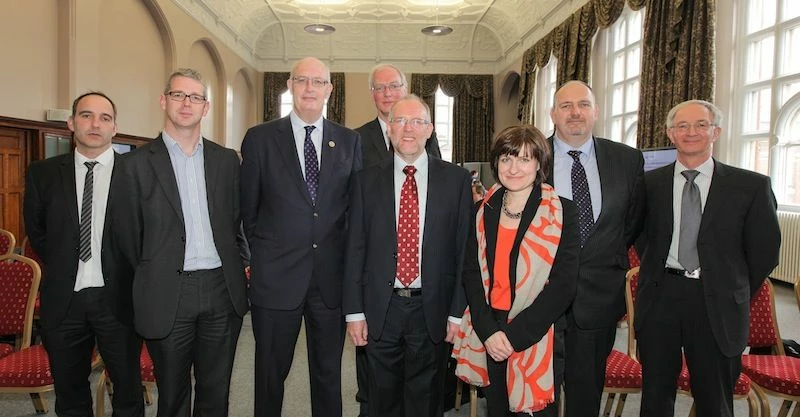
Partner Article
North East infrastructure investment needed to defend weather
North East infrastructure must be developed to cope with increasing extremes of weather, a panel of experts argued this week.
Representatives from Network Rail, National Grid, Newcastle City Council and the Institute of Civil Engineers (ICE) all presented cases for infrastructure spending to an audience of industry delegates.
All panelists stressed that current infrastructure was built to cope with “one in 100 years” storms that were now happening much more frequently.
Tom Brown, chair of the ICE’s North East Flooding panel, suggested a significant cost-benefit study should be carried out to inform local authorities where infrastructure spending would achieve “most bang for buck.”
He said: “When the lights go out, it’s a very bad advert for the region. Local authorities don’t have the money and resources, and therefore they don’t know what they don’t know.
“Local authorities have been given the lead to deal with flooding, but this means they have to use money that would otherwise be spent on other things.
“Really, this means they are given the responsibilities without any of the funding.”
Clive Leadbetter, general manager at tripartite organisation Aone+, who deliver contracts for the Highways Agency, argued the case for spending on roads.
“All of our roads in the region are of significant national importance. We see a lot of freight travel on these roads.”
He added: “Road closures cost the economy £1bn per year. I’ve dealt with drainage for much of my career, and we’re now frequently seeing one in 100 year storms, and our networks can’t cope.”
Elsewhere, David Hutchinson, a route asset manager at Network Rail, said while other panelists were stressing the age of assets, much of the rail earthworks were over 150 years old.
David argued pressures from sites neighbouring the railways were impacting the network at the same time as flooding.
John Robinson, principle engineer – street management at Newcastle City Council, argued the case for more spending in the urban environment, to make property and public assets more resilient.
Following each panelists’ “pitch,” delegates were asked to vote on where they believed investment should be made.
The debate, held at Northumbria University, was part of a two-day visit to the region by Professor Barry Clarke, President of the ICE.
Summing up, he said: “Flooding has caused a lot of damage here in the North East. It starts to affect the economy very quickly. In terms of damage to property and to the regional economy, the cost to the North East annually runs into the hundreds of millions of pounds.”
This was posted in Bdaily's Members' News section by Tom Keighley .
Enjoy the read? Get Bdaily delivered.
Sign up to receive our daily bulletin, sent to your inbox, for free.








 The value of using data like a Premier League club
The value of using data like a Premier League club
 Raising the bar to boost North East growth
Raising the bar to boost North East growth
 Navigating the messy middle of business growth
Navigating the messy middle of business growth
 We must make it easier to hire young people
We must make it easier to hire young people
 Why community-based care is key to NHS' future
Why community-based care is key to NHS' future
 Culture, confidence and creativity in the North East
Culture, confidence and creativity in the North East
 Putting in the groundwork to boost skills
Putting in the groundwork to boost skills
 £100,000 milestone drives forward STEM work
£100,000 milestone drives forward STEM work
 Restoring confidence for the economic road ahead
Restoring confidence for the economic road ahead
 Ready to scale? Buy-and-build offers opportunity
Ready to scale? Buy-and-build offers opportunity
 When will our regional economy grow?
When will our regional economy grow?
 Creating a thriving North East construction sector
Creating a thriving North East construction sector